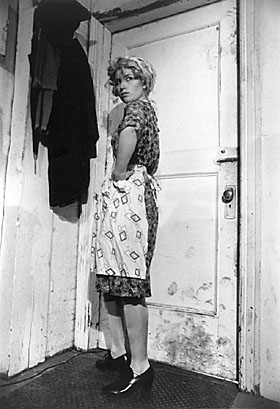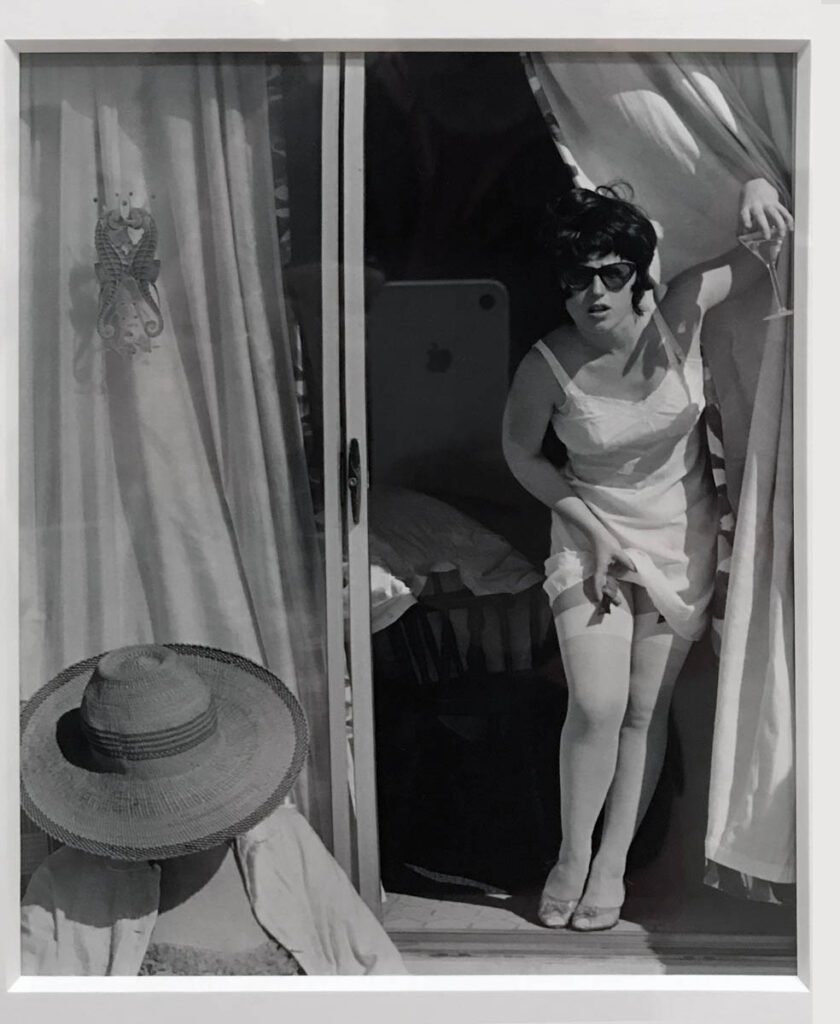Cindy Sherman is a renowned American photographer and artist, known for her self-portraits and exploration of identity. She was born on January 19, 1954, in Glen Ridge, New Jersey, and became one of the most important figures in contemporary art. Sherman’s works often question the portrayal of women in society and the media.
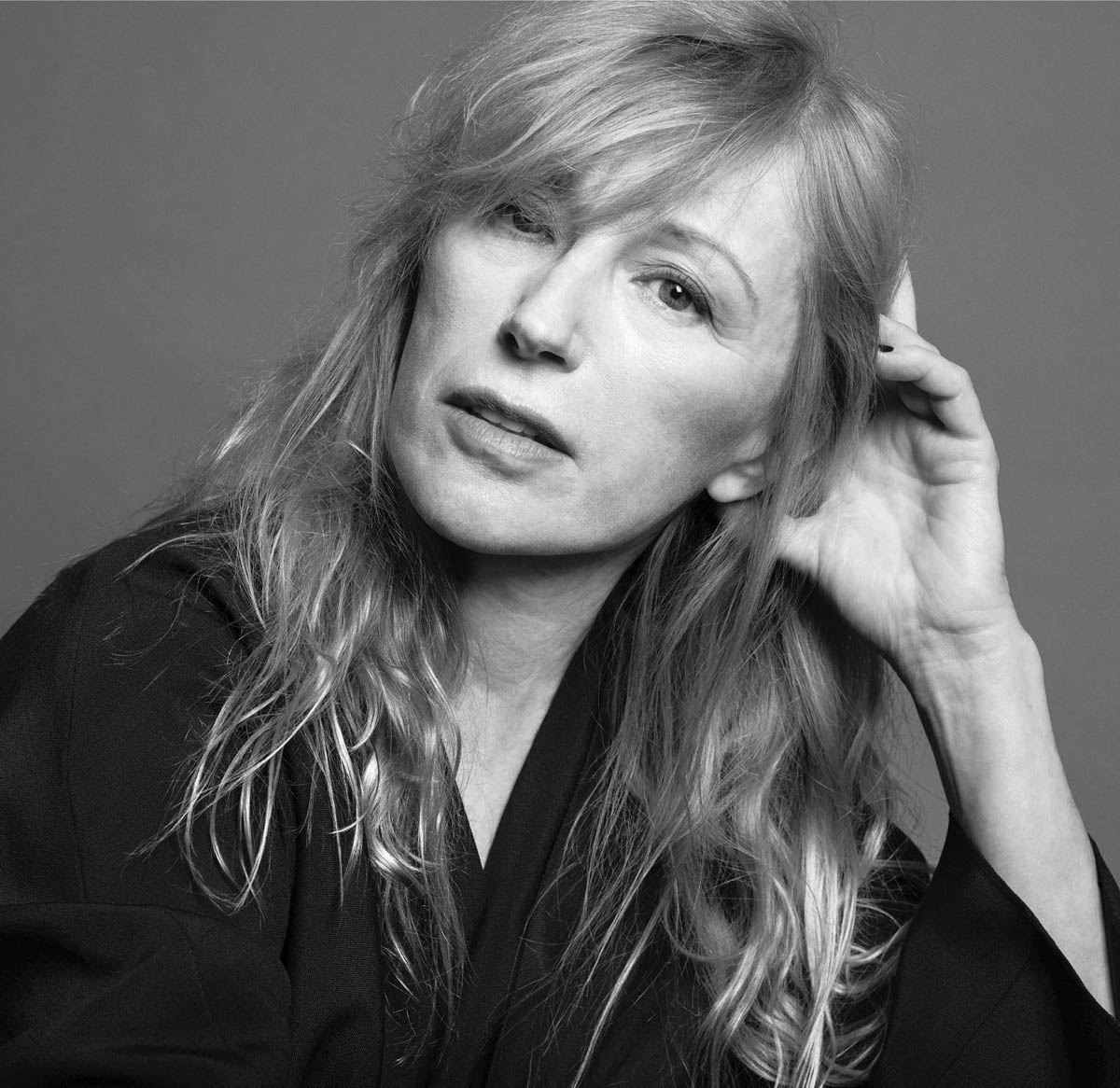
Early Life and Education
Cindy Sherman grew up in New Jersey before moving to Long Island, New York. She showed an interest in art from a young age. Sherman attended the State University College at Buffalo, where she studied art. During her time there, she became passionate about photography and graduated with a Bachelor of Fine Arts in 1976.
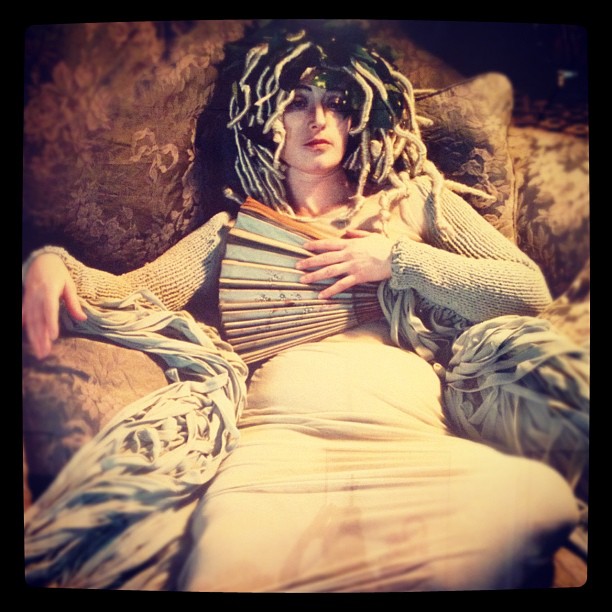
Starting Her Career
Sherman initially moved to New York City after graduation. In the late 1970s, she began exploring photography through self-portraits. She didn’t use traditional models but instead photographed herself in various costumes and personas. This approach made her stand out in the art world. Her photographs often depict women in situations influenced by film, media, and art history.
Untitled Film Stills (1977–1980)
One of Sherman’s most iconic series is Untitled Film Stills. In this work, she photographed herself as women in staged cinematic scenes, making each image feel like a still from an unseen film. The series challenges common stereotypes about women and the roles they are expected to play in film and media. Sherman plays with the viewer’s perception of identity and reality.
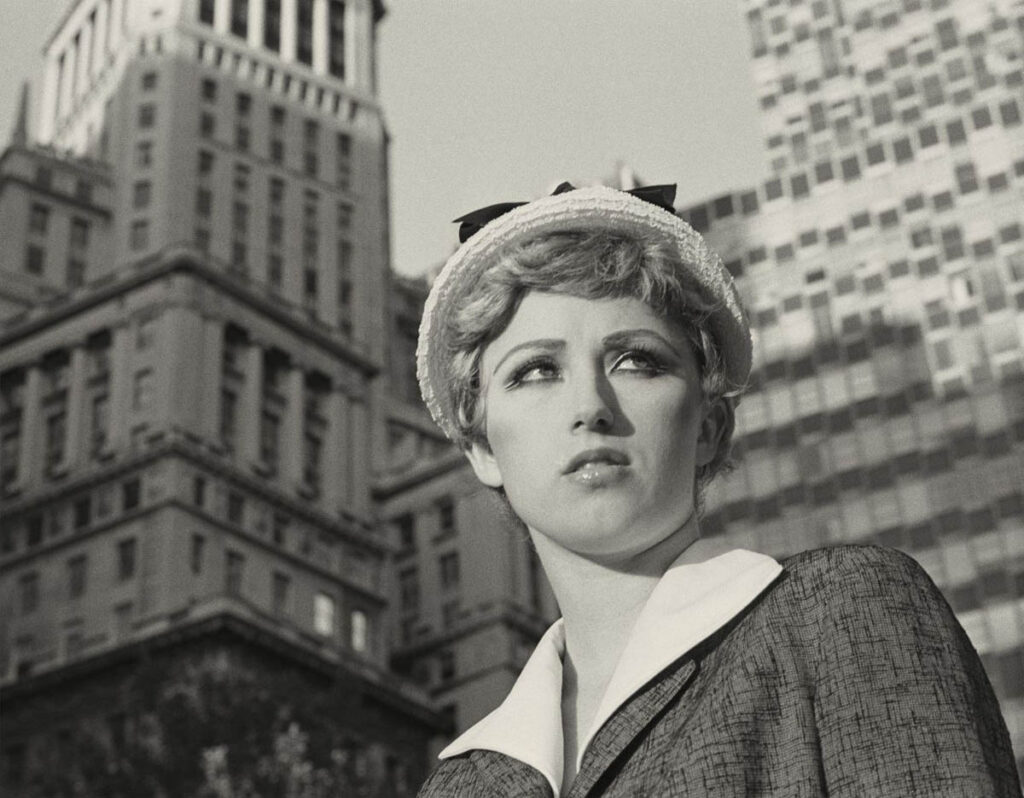
Exploring Gender and Identity
Throughout her career, Sherman has used her work to explore issues of gender, identity, and social roles. In her later series, she portrayed a wide range of characters, including clowns, historical figures, and grotesque, distorted versions of herself. Sherman’s ability to transform into different personas allowed her to question the concept of fixed identity.
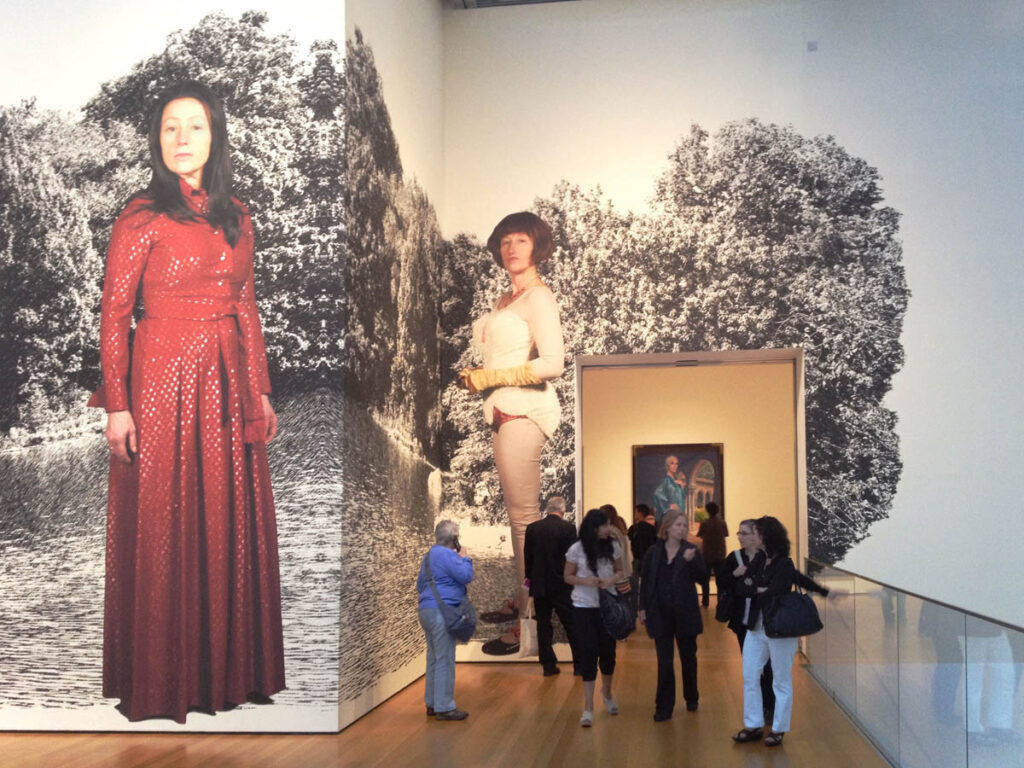
History Portraits and Color Photography
In the 1980s, Sherman expanded her artistic range by exploring historical themes. The History Portraits series (1989) shows Sherman as famous figures from art history, using elaborate costumes and props. This series critiques the idea of the idealized, static representation of women in classical portraiture. In the 1990s, she also began to experiment with color photography, making her work even more dynamic and diverse.
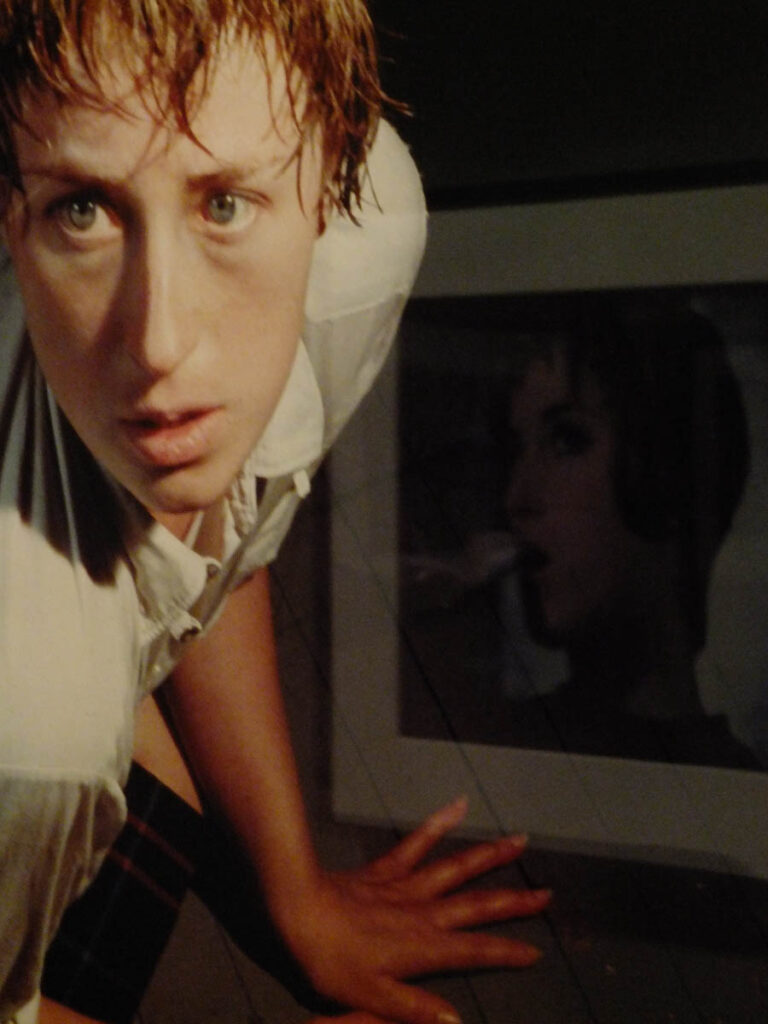
Clowns, Fairy Tales, and Other Themes
In the 1990s and 2000s, Sherman explored various themes through new series. She created Clowns, a set of images where she used exaggerated makeup to explore the emotional complexity of clowns. In another project, Sherman recreated characters from fairy tales and horror stories, reflecting on societal fears and the darker side of human nature.
Cindy Sherman’s Influence and Recognition
Sherman’s work has had a lasting impact on contemporary art and photography. She has inspired countless photographers, artists, and filmmakers. Her exploration of identity and the use of self-portraiture as a medium are groundbreaking. Sherman has exhibited her work in major museums around the world, including the Museum of Modern Art in New York and the Tate Modern in London. She has received numerous awards, including a prestigious MacArthur Fellowship in 1995.
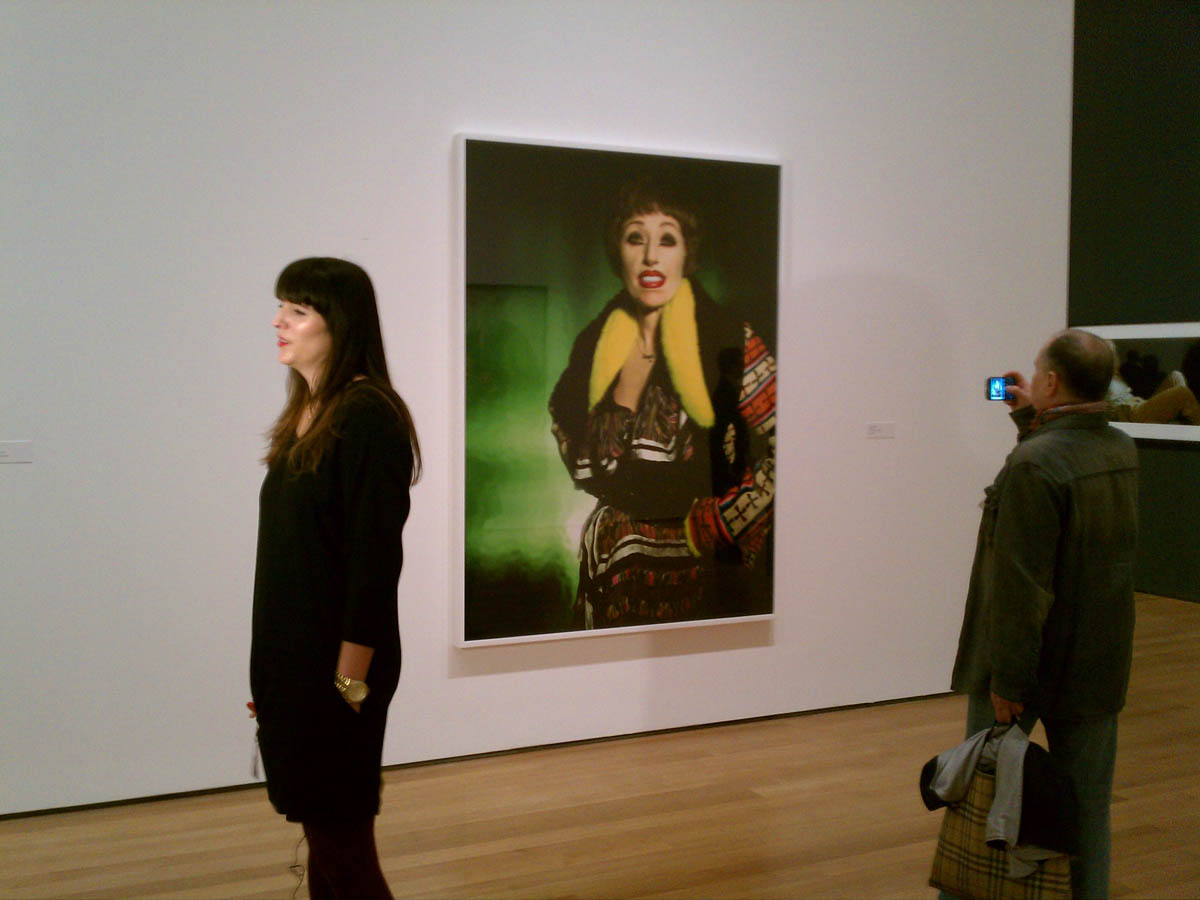
Personal Life and Artistic Philosophy
Sherman is known to be very private about her personal life, which adds an air of mystery to her work. Her art is deeply personal, yet it addresses universal themes such as identity, gender roles, and societal expectations. Sherman often speaks about her art in a way that shows she is more interested in the ideas and concepts behind her work than in herself as an individual.
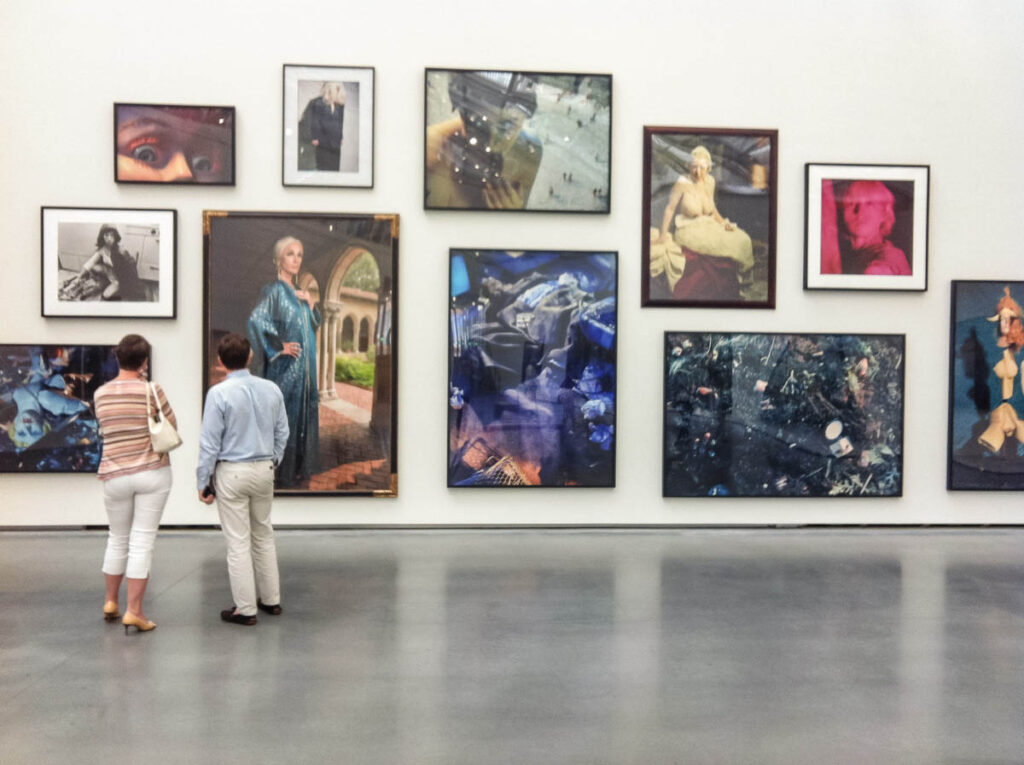
Continued Innovation
Cindy Sherman continues to create thought-provoking art today. Her more recent works challenge concepts of beauty and transformation. Through her unique approach to self-portraiture, she remains one of the most influential figures in contemporary art and photography.
Conclusion
Cindy Sherman’s work remains influential in the world of photography and contemporary art. She has transformed the way people view identity and representation. Sherman’s ability to create diverse and often provocative characters makes her one of the most innovative artists of her generation.

